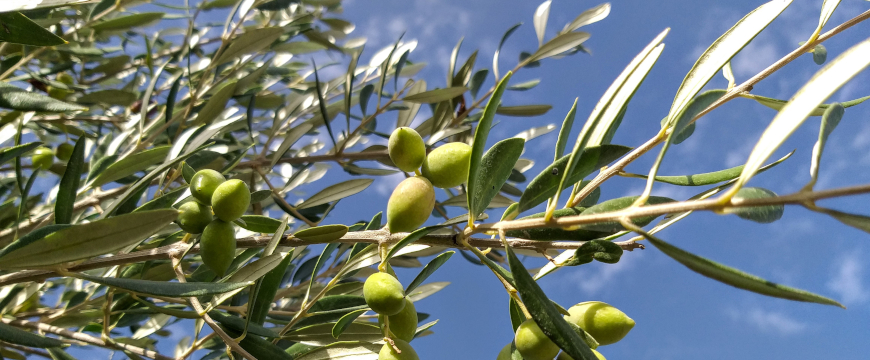Looking to the future, Greek experts anticipate challenges for the Greek olive oil sector, but also see potential for positive developments. Considering the situation of the Greek olive oil industry in and beyond 2022, including ongoing climate change and production and export models and plans, they offer a variety of predictions and recommendations.
Some of the highs and lows for the Greek olive oil sector in 2022 that were discussed in a recent Year in Review article were summarized by Dr. Vasileios Stournaras, Assistant Professor in the Department of Agriculture at the University of Ioannina:
- Good points: high prices for olive oil
- Bad points: high cultivation costs (fertilizers, electricity, labor)
Other experts agreed on those points and commented on problems with the olive fly, difficulties hiring enough farm laborers, and a shortage of olive oil bottles, on the one hand, along with a large quantity of high quality extra virgin olive oil in Greece, on the other.
Dr. Athanasios Gertsis, director of Krinos Olive Center and professor at Perrotis College/American Farm School, was glad to see “more young olive farmers enter the processing and labeling business, a good sign for the future -- but small quantities to compete in the long run!”
Cristina Stribacu, founder of Women in Olive Oil Greece, similarly considered it “remarkable how many new olive oil brands are made,” but at the same time found it “frightening that the average age of the olive oil producer is 65 years old.” While she is aware of many who “want to be involved in the sector, as brand owners, tasters, consultants, etc.,” she has noticed only a “few people with passion to work in the most important stage, the olive field, and work in a holistic approach from farm to bottle.”
Moreover, “a large number of people are involved in olive oil who in many cases are not farmers and live in urban areas,” says George Kokkinos, president of the Nileas Producers Group in Messinia, Peloponnese. “These factors make it difficult to continue the activity, as it is also difficult for professional farmers. My assessment is that those who can respond to the difficulties and take advantage of the opportunities will be able to continue.”
“The future of Greek olive oil is uncertain, because many people have abandoned their cultivation” due to the problems faced in and before 2022, according to Iordanis Tornaris of the Commercial Department of the Agricultural Cooperatives' Union - Laconia Greece S.A. Given the difficulty of finding laborers, Gertsis told Greek Liquid Gold he believes “the emerging olive producing countries (mainly in North Africa, USA and Australia) which have invested in high density systems adapted for mechanical harvesting will have a great advantage in the coming years.”
Kokkinos offers a somewhat different perspective: “a realistic plan is needed for the Greek olive oil industry that emphasizes its two strong comparative advantages: its environmental and cultural dimensions.” Others have pointed out that these advantages are evident in agrotourism ventures that highlight the significance of olive trees and their products in terms of natural beauty, history, and cuisine, and in articles and presentations on the traditional, olive oil rich Greek Mediterranean diet’s benefits for human and planetary health.
While drought did not hit Greece in 2022, experts agree that preparation for climate change and plans for adaptation to warmer temperatures are essential. Stribacu deems it “an emergency to change our model in order to resist and save olive oil production from climate change.”
Olive oil taster and quality consultant Vasilis Frantzolas fears that “Greek producers are not prepared to confront the consequences of the upcoming climatic crisis” expected if the average global temperature increases more than 1.5 degrees Celsius, “making olive production unsustainable” in certain areas using the current cultivars. “It is therefore urgent to start experimenting with different olive varieties adapted to warmed climate conditions (as in North Africa). Also, irrigation will become even more critical than today to secure adequate production.”
However, added Frantzolas, “a positive consequence of the projected temperature increase will be the limited presence of olive flies and the possibility to plant olive groves in northern parts of Greece, which has already started happening in Macedonia.”
Agronomist, journalist, and publisher Vasileios Zampounis wrote in Olivenews.gr on December 31 that extra virgin olive oil prices approximately doubled in Greece and Spain in the last two years. Alluding to uncertainties about the weather, consumer behavior, international trade, and energy prices in the coming months, Zampounis said “the ideal scenario would be to take advantage of this year's favorable circumstances to build foundations for the future, with investment and strong institutions.”
Given all the challenges of 2022, Emmanouil Karpadakis, vice president of the Cretan Exporters Association, thought it was “a good year to re-evaluate our approach to cultivation and marketing. I believe the current circumstances have created opportunities for Greek branded olive oil that must be explored. Greek extra virgin olive oil has all the necessary and fundamental elements to increase its presence in the international market and mass retail.”
Many agree that a significant challenge facing the Greek olive oil sector is to decrease the amount of olive oil exported in bulk and increase the amount of branded olive oil sold. Years of success in international olive oil competitions worldwide suggest that the high quality of Greek extra virgin and flavored olive oil warrants recognition and appreciation, rather than the anonymity of bulk sales and international blending.
All businesses, organizations, and competitions involved with Greek olive oil, the Mediterranean diet, and/or agrotourism or food tourism in Greece, as well as others interested in supporting Greeks working in these sectors, are invited to consider the advertising and sponsorship opportunities on the Greek Liquid Gold: Authentic Extra Virgin Olive Oil website. The only wide-ranging English-language site focused on news and information from the Greek olive oil world, it has helped companies reach consumers in more than 220 countries around the globe.



